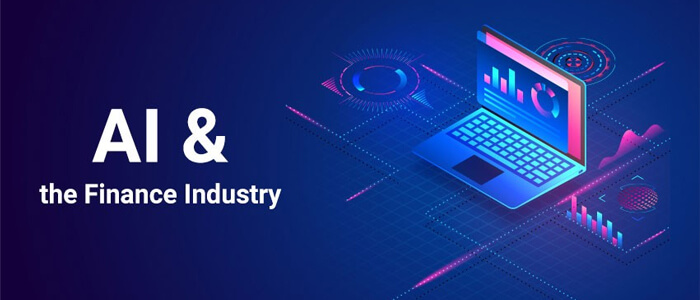Exploring the Impact of Artificial Intelligence on Financial Services
Anúncios
Artificial Intelligence (AI) within the finance sector represents the fusion of cutting-edge computational technologies with financial operations. It harnesses algorithms and machine learning to not only streamline data analysis but also enhance decision-making across various financial services. These innovations automate tasks ranging from basic data entry to intricate predictive analyses, enabling financial institutions to boost efficiency and deliver sophisticated services to clientele.
The application of AI in finance spans critical areas like risk management, fraud detection, investment strategies, and customer service. By interpreting massive datasets, AI identifies nuanced patterns that elude human analysts, facilitating more precise credit risk assessments, personalized investment recommendations, and proactive market trend forecasts.
Anúncios
Moreover, AI enables real-time data processing and the delivery of tailored banking experiences. Financial service providers integrate AI systems to optimize customer interactions, minimize operational expenses by automating repetitive tasks, and leverage advanced analytics for navigating the intricacies of financial markets. This integration furnishes institutions with a competitive advantage in a dynamic industry landscape.
Essentials of AI in Financial
rtificial intelligence is reshaping the financial landscape, offering unprecedented advancements in data analysis and decision-making processes. Through this exploration, we delve into the foundational concepts of AI, its evolutionary path, and the pivotal technologies driving its application across various facets of the finance industry.
Anúncios

As AI continues to permeate financial operations, it brings forth unparalleled opportunities for efficiency, accuracy, and innovation. By understanding the core principles and historical context of AI, stakeholders in the financial sector can harness its transformative potential to navigate complex challenges and unlock new avenues for growth and development.
Definition of AI in Finance
The AI in finance refers to the utilization of intricate computational algorithms to interpret multifaceted financial data. Its primary objectives include automating processes, refining portfolios, mitigating risks, and delivering tailored client services.
Evolution of AI in Finance
The integration of AI into finance traces back to the late 20th century, marked by early applications in pattern recognition and fraud detection within financial institutions. Over subsequent decades, technological progress and a proliferation of data have driven a notable uptick in AI adoption across the financial sector.
Applications of AI in Finance
Artificial intelligence is transforming the realm of finance, fundamentally altering the way data is analyzed and decisions are rendered. It’s akin to possessing a virtual assistant that sorts through vast volumes of data, providing valuable insights into market trends, optimizing investment portfolios, and foreseeing potential risks.

As AI advances further, its influence on the financial sector is anticipated to expand, ushering in a new era of streamlined and tailored financial services tailored to each individual’s unique requirements.
Algorithmic Trading
Algorithmic trading, a sophisticated practice in finance, employs intricate AI algorithms to execute rapid trading decisions. These algorithms meticulously analyze real-time market data, enabling the execution of trades at the most opportune moments while identifying nuanced patterns imperceptible to human traders. This approach not only accelerates trading processes but also endeavors to optimize profits and minimize expenses, heralding a new era of efficiency and precision in financial markets.
Fraud Detection and Prevention
AI systems have the capability to monitor financial transactions on a continual basis, detecting anomalies typically indicative of fraud. They use predictive analytics and machine learning to recognize patterns and flag unusual activities, which can then be investigated by human analysts. This real-time analysis helps financial institutions react swiftly to mitigate potential threats.
Credit Scoring
Credit scoring has been transformed by AI, which now incorporates a broader range of data points, including non-traditional variables to assess an individual’s creditworthiness. These AI models can process vast volumes of information and provide more accurate and nuanced credit scores than traditional methods, facilitating fairer lending practices.
Personalized Banking
Banks are employing AI to offer personalized banking experiences to their customers. By analyzing customer data, AI can deliver tailored financial advice, recommend suitable products, and improve customer service interactions. Through chatbots and virtual assistants, banks provide 24/7 customer service, enhancing client satisfaction and engagement.
Challenges and Considerations
In the realm of finance, artificial intelligence introduces a series of challenges and considerations that financial institutions must navigate. These range from safeguarding sensitive data to ensuring adherence to complex regulations and grappling with the ethical nuances of AI-driven decision-making.
Data Privacy and Security
The integration of AI in finance necessitates stringent data privacy and security measures. Financial institutions collect and process vast quantities of sensitive personal and financial information, necessitating advanced cybersecurity protocols to prevent data breaches. Encryption of data in transit and at rest, as well as access controls to prevent unauthorized data exposure, are essential.
Regulatory Compliance
Financial entities must also contend with regulatory compliance. As AI systems can make decisions autonomously, they must operate within the framework of financial regulations such as the General Data Protection Regulation (GDPR) and the Dodd-Frank Act. Ensuring that these systems are transparent and auditable is critical to satisfy regulatory bodies that may demand explanations for algorithmic decisions.
Ethical Implications
Lastly, the ethical implications of AI cannot be overlooked. Decisions made by AI, particularly in credit scoring and loan approvals, must avoid bias and promote fairness. Since AI systems learn from historical data, they may perpetuate existing biases if not carefully managed. Furthermore, institutions have the responsibility to address the accountability for decisions made by AI systems, to maintain public trust and avoid discrimination.
Future of AI in Finance
The incorporation of artificial intelligence (AI) within the financial domain is fundamentally reshaping conventional methodologies and fostering unprecedented levels of innovation. As AI algorithms continue to advance in complexity, financial institutions are leveraging them to streamline processes, augment decision-making capabilities, and unlock novel avenues for growth and profitability.

From algorithmic trading to risk management and client servicing, AI is permeating every facet of the financial sector, promising to revolutionize operational paradigms and redefine customer engagement strategies in the digital age. Furthermore, the progression of AI within finance is not solely confined to enhancing operational efficiency; it is also democratizing access to financial services.
By automating tasks and tailoring interactions, AI-driven solutions are extending financial products and advisory services to individuals and enterprises worldwide. This democratization of finance has the potential to foster greater financial inclusivity, empower consumers, and stimulate economic advancement across diverse communities and regions.
Emerging Technologies
- Machine Learning Algorithms: These are at the forefront, offering predictive analytics to drive investment strategies and risk management. Natural Language Processing (NLP) enables real-time processing of unstructured data, enhancing customer services and compliance monitoring.
- Hybrid Intelligence Systems: The integration of AI with human expertise aims to balance automation with ethical considerations and emotional intelligence, thereby refining decision-making processes.
Industry Trends
In today’s financial landscape, industry trends are rapidly evolving with the integration of cutting-edge technologies. One notable trend is the increasing adoption of automation in customer service by financial institutions. This involves leveraging artificial intelligence (AI) to deploy chatbots and voice assistants, offering efficient and reliable support to customers.
- Automation in Customer Service: Financial institutions are increasingly adopting AI for automating customer interactions, using chatbots and voice assistants, which provide quick and reliable support.
- Data-Driven Decision Making: Massive data inflow is being leveraged by AI for deeper insights into market trends, enabling companies to tailor their services and anticipate customer needs.
- Focus on Security: Financial firms prioritize enhancing security measures through AI, employing advanced algorithms to detect and prevent fraud in its early stages, ensuring trust and reliability in financial transactions.
There is a significant emphasis on data-driven decision-making, where AI harnesses massive data inflows to provide deeper insights into market trends. This enables companies to tailor their services and anticipate customer needs effectively.





